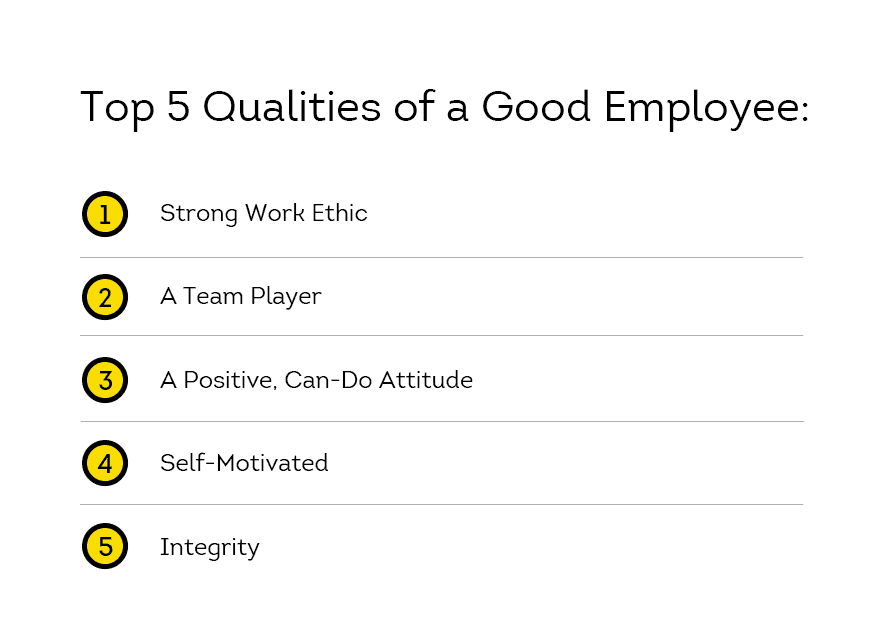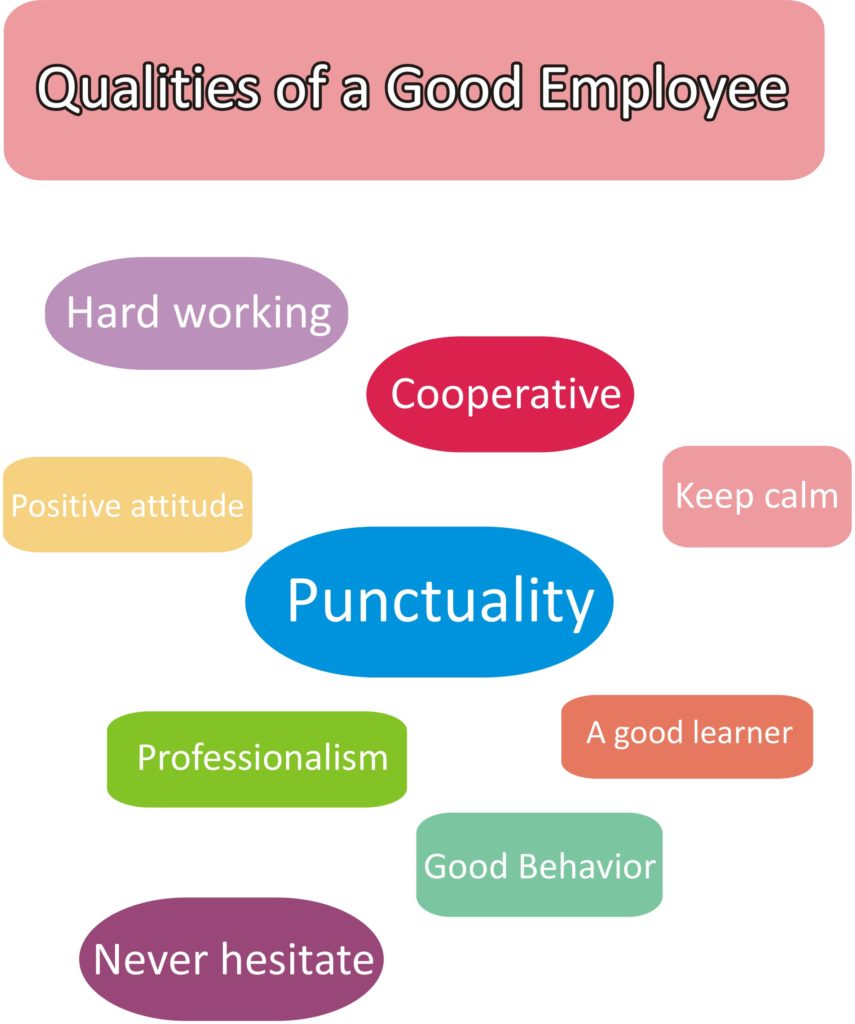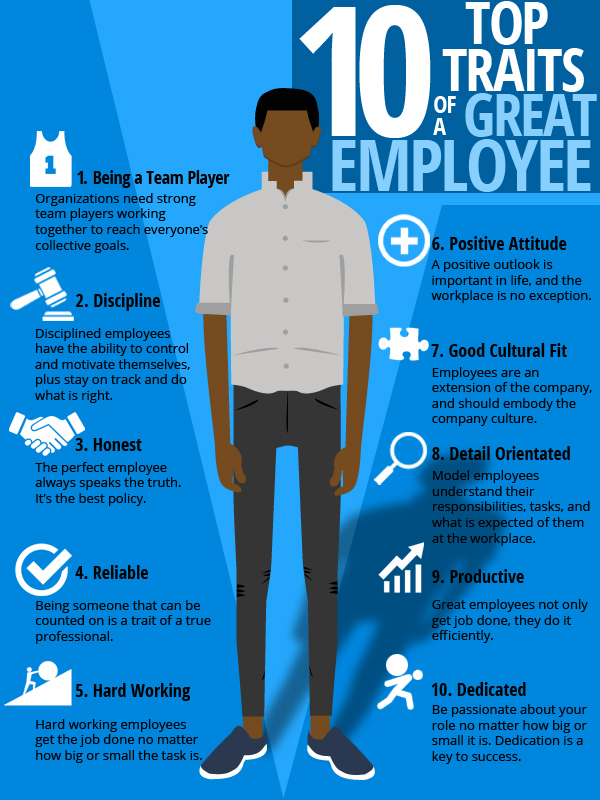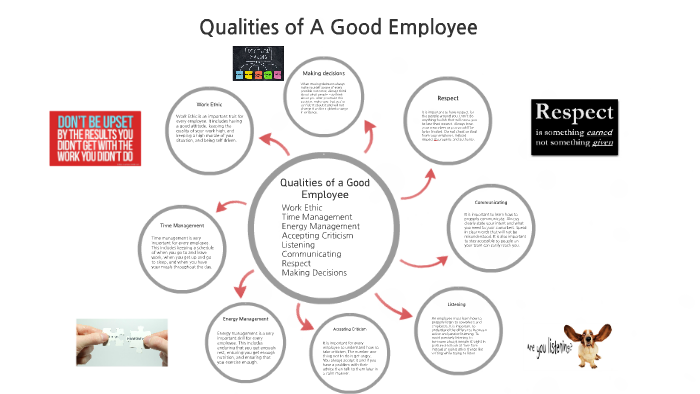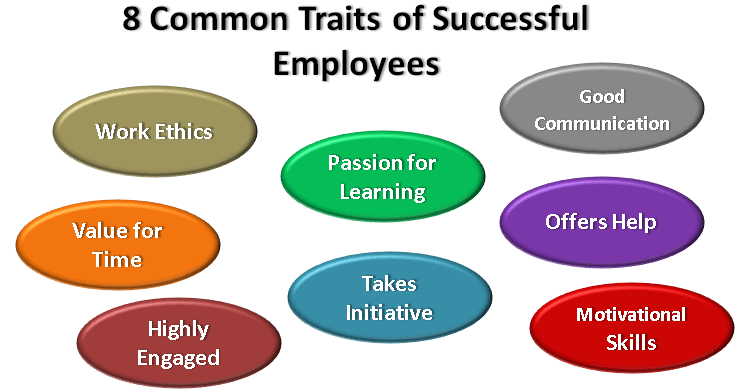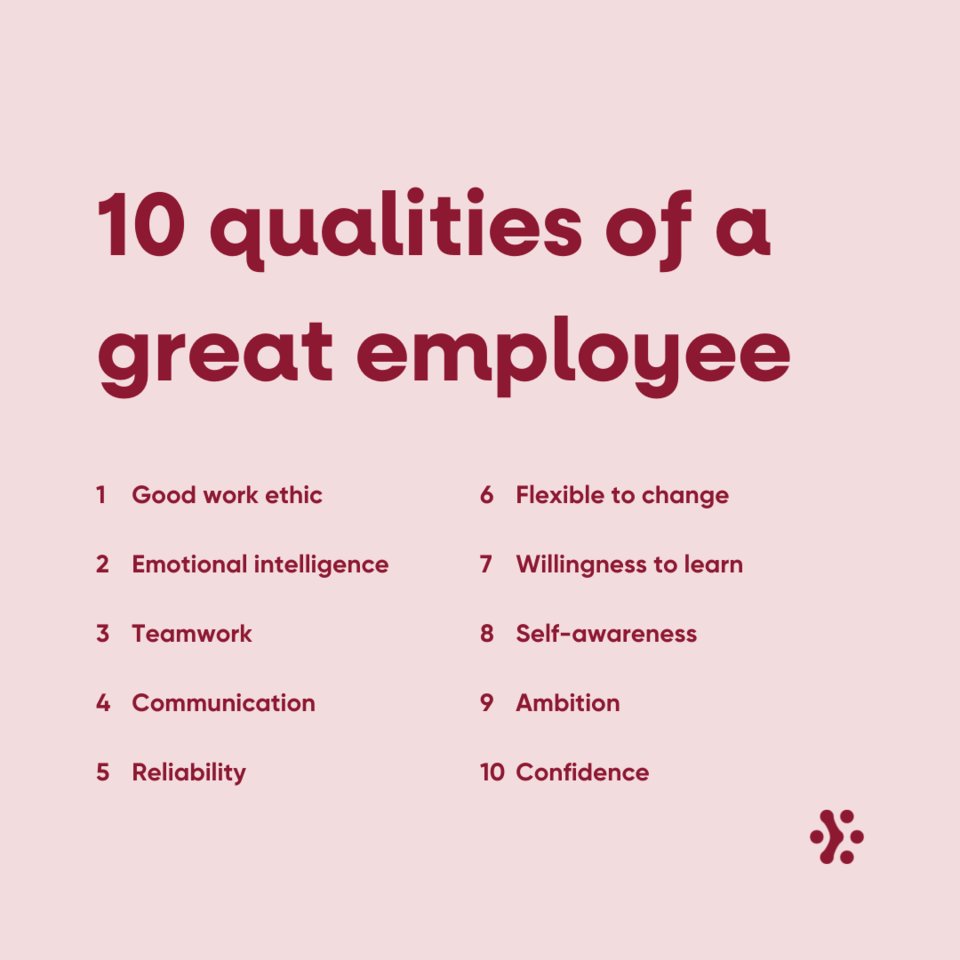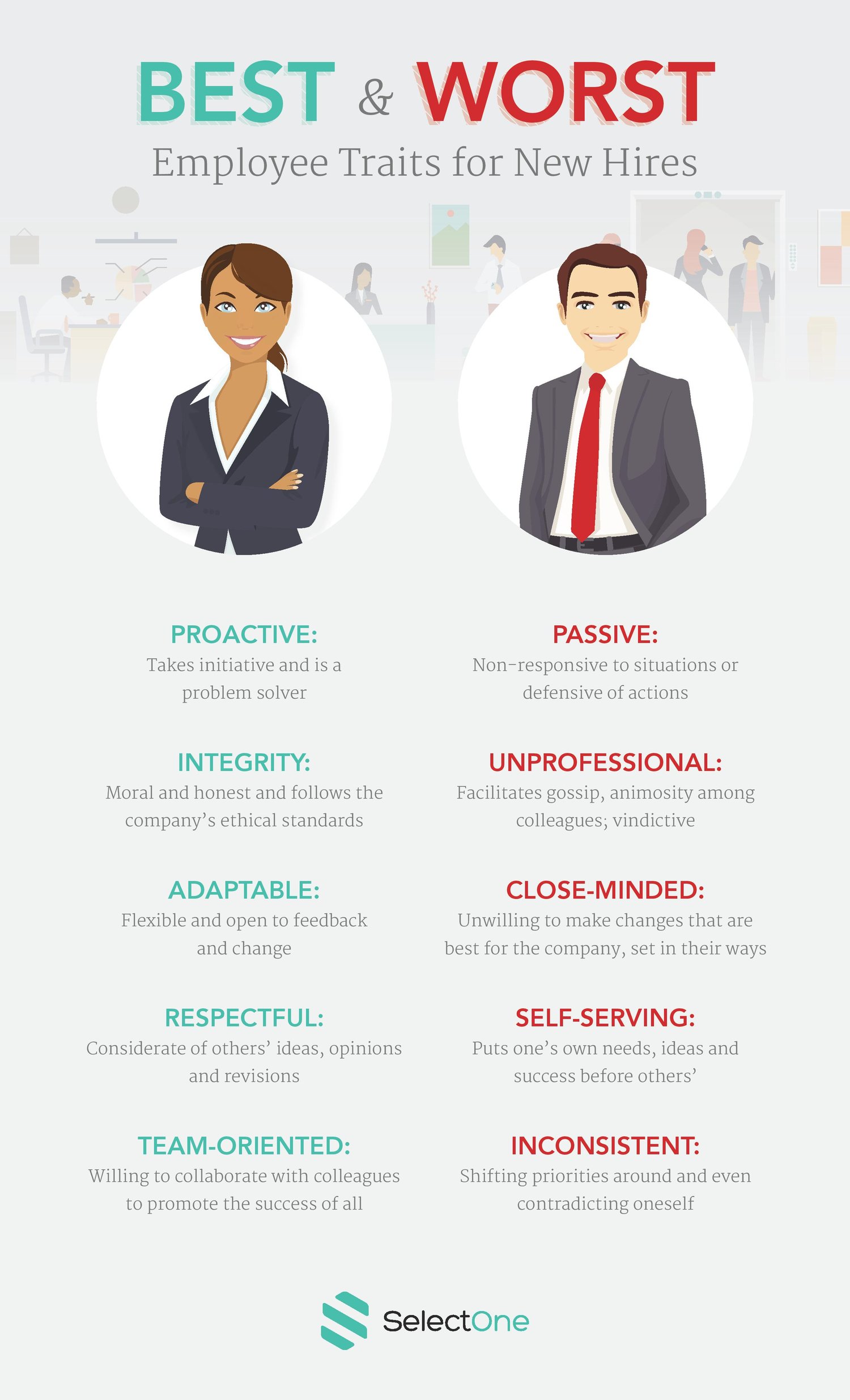Qualities Of A Good Worker Employee

In today's competitive job market, identifying and cultivating qualities of a good worker employee is more crucial than ever for businesses aiming for sustained success. While technical skills remain essential, employers are increasingly prioritizing soft skills and behavioral attributes that contribute to a positive and productive work environment. What exactly defines a "good worker employee," and how can these qualities be fostered within organizations?
At its core, the definition transcends mere task completion and delves into the realm of adaptability, responsibility, and teamwork. These traits directly impact employee morale, overall productivity, and ultimately, the company's bottom line. Understanding these key characteristics is essential for both employers seeking to recruit top talent and employees striving for professional growth.
Core Qualities of an Effective Employee
Reliability and Responsibility
A cornerstone of any good employee is their reliability. They consistently meet deadlines, honor commitments, and take ownership of their work. This dependability builds trust within the team and allows managers to delegate tasks with confidence.
According to a 2023 study by SHRM (Society for Human Resource Management), "employees who demonstrate a strong sense of responsibility are 30% more likely to be promoted within the organization." This highlights the tangible benefits of consistently delivering on expectations.
Communication Skills
Effective communication is paramount in any workplace. Good employees can clearly articulate their ideas, actively listen to colleagues, and provide constructive feedback.
This includes both verbal and written communication, as well as the ability to adapt their style to different audiences. Furthermore, it entails transparency and active listening to understand the needs of both internal and external stakeholders.
Teamwork and Collaboration
Most roles require collaboration with others. A good employee is a team player who can work effectively with diverse individuals to achieve common goals.
They contribute positively to team discussions, share knowledge and resources, and are willing to help colleagues when needed. Fostering a collaborative environment reduces conflicts and improves overall project success rates.
Problem-Solving Abilities
The ability to identify and solve problems is highly valued. Good employees are proactive in addressing challenges and seeking innovative solutions.
They possess critical thinking skills and are able to analyze information, evaluate options, and make informed decisions. A problem-solving mindset not only overcomes immediate hurdles but also contributes to continuous improvement within the organization.
Adaptability and Flexibility
In today's rapidly changing business landscape, adaptability is crucial. Employees must be able to adjust to new situations, learn new skills, and embrace change.
This includes being open to new technologies, processes, and organizational structures. Employees who can easily adapt are better positioned to thrive in a dynamic environment.
Professionalism and Ethics
Maintaining a high standard of professionalism and ethical conduct is essential. This includes respecting colleagues, following company policies, and upholding the organization's values.
Ethical behavior builds trust with clients, partners, and other stakeholders, reinforcing the organization's reputation. A commitment to integrity is a key indicator of a valuable employee.
The Importance of Continuous Development
The qualities of a good employee are not static; they require continuous development and refinement. Employers can support this by providing opportunities for training, mentorship, and feedback.
Employees, in turn, should be proactive in seeking out opportunities to enhance their skills and knowledge. This ongoing investment benefits both the individual and the organization.
"Investing in employee development is not just a cost; it's an investment in the future of the company,"stated Dr. Anya Sharma, a leading HR consultant at Global Talent Solutions. This sentiment highlights the long-term value of nurturing employee potential.
Conclusion
Ultimately, the qualities of a good worker employee encompass a blend of technical skills, soft skills, and personal attributes. These qualities contribute to a positive and productive work environment. As businesses navigate an evolving landscape, prioritizing these characteristics will be crucial for attracting, retaining, and developing top talent.
Focusing on fostering these qualities leads to better teamwork, increased productivity, and a more resilient and successful organization. The key to developing this is to invest in the development of employees, and give them clear expectations and regular feedback.
